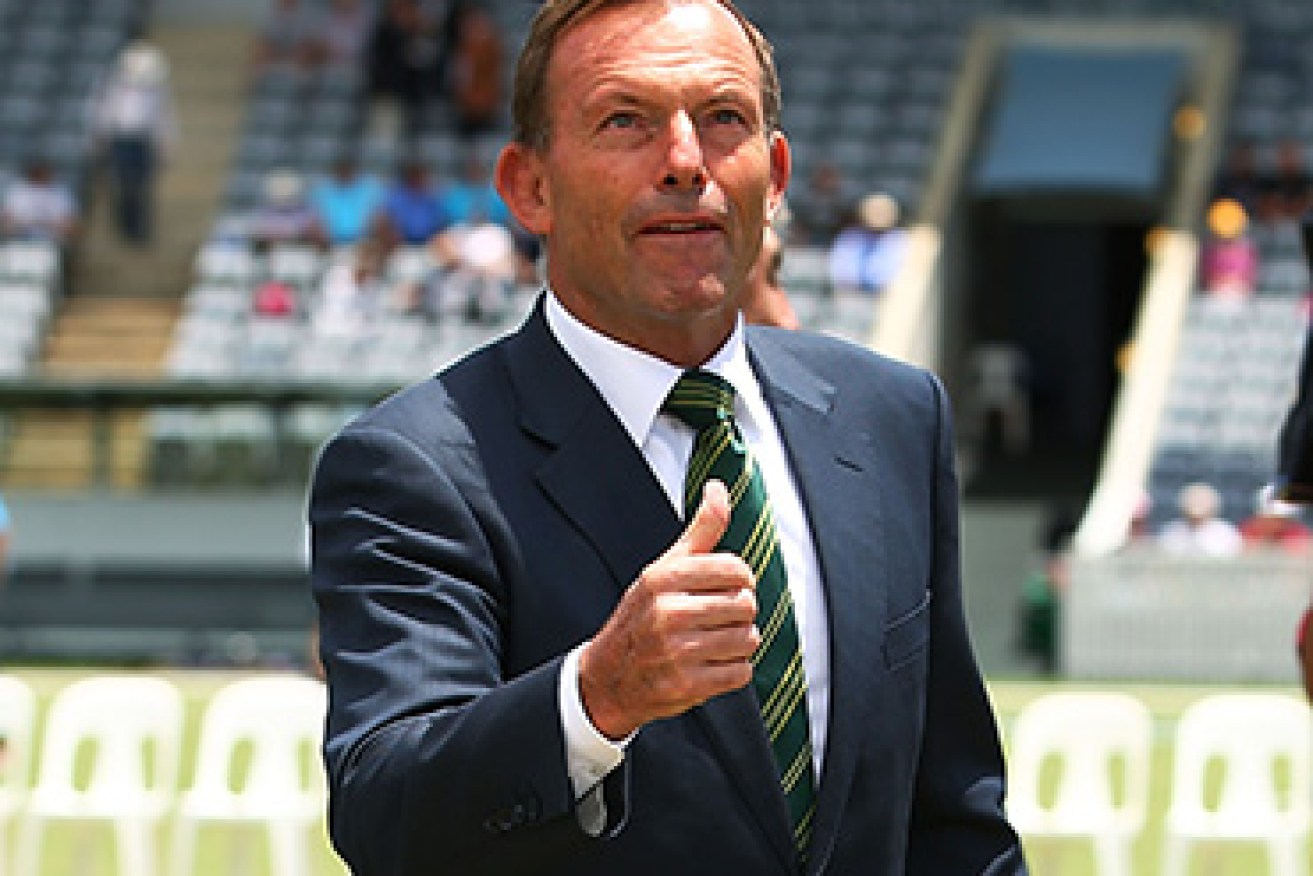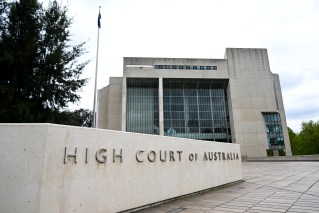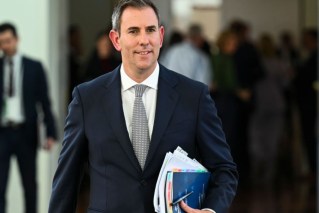Wounded Abbott fighting for his political life

AAP
When Tony Abbott fronts the National Press Club on February 2, he’ll be under the most intense scrutiny perhaps any prime minister has faced.
While the new political year has barely got under way – federal parliament doesn’t resume for more than a fortnight – leadership has already emerged as the defining issue for 2015.
And as federal MPs get back into offices after the summer recess, hitting the phones after taking the pulse of middle Australia, the sentiment is near unanimous. The PM has a massive problem with the punters.
• Tony Abbott hits back at leadership speculation
• Why Nick Xenophon is Australia’s most powerful man
• Rob Burgess: What is Joe Hockey softening us up for?
The danger for the Prime Minister is that the electorate – like a number of his Coalition colleagues who I have spoken to over the past week – have simply made up their mind.
Against this backdrop, with a national leader whose authority is severely dented, neither the Labor Party nor an increasingly strident Senate can be expected to do the PM any favours.
Mr Abbott was elected just 16 months ago, on a platform that involved getting rid of the hated carbon and mining taxes and stopping the boats. He’s achieved all three, but this counts for little in the minds of voters who no longer appear to have any brand loyalty when it comes to the main parties.
Consider the demise of the Victorian Coalition government after one term and the uphill struggle faced by the Liberal National Party to win a second term in Queensland.
The PM is paying a hefty price for broken budget promises and a failure to secure the backing of voters for tough savings measures.
Unlike John Howard or Bob Hawke, the Abbott government has done a lousy job at explaining the rationale behind its suite of reforms in higher education, welfare and health.

Heads I lose, tails I lose? Photo: AAP
“Judge us on our record,” a defiant Mr Abbott told Melbourne radio’s Neil Mitchell on Wednesday morning, as he sought to fend off claims that he was in serious strife.
It is true that the government has made some courageous decisions in its first year: the decision to green light a second airport for western Sydney was particularly brave and defied decades of prevarication by weak-kneed administrations in Canberra. But Mr Abbott has failed to win plaudits for such actions, just as it appears that any dividend from the heightened terror alert was either short-lived or non-existent.
There is a real possibility that the current parliament will descend into further chaos as an increasingly confident Labor Party tests the will and resolve of Coalition MPs to defend their weakened leader.
Unless the PM can turn around opinion polls that have been stubbornly bad, the calls for leadership change will only grow louder. The scenario most often quoted is for Foreign Minister Julie Bishop to step up, with popular Malcolm Turnbull as her deputy. That would win applause in the electorate but while Ms Bishop has performed admirably on the world stage it would be a major leap of faith to put her in the Lodge.
Still, stranger things have occurred in federal politics where the pressure of leadership is magnified by the visceral outpourings of those on social media who would wish Mr Abbott a particularly painful political death.
Says one of Labor’s most experienced personnel: “They want to lynch him. Their worst fears have been realised and they can’t wait to get rid of him.”
No wonder the PM was sounding so defensive on Thursday as he reminded Neil Mitchell and his listeners of the fate that awaits political parties who tear down their own.
“If there is one lesson to be learnt from the fate of the former government in Canberra, maybe even the former government in Victoria, it is you do not change leaders,” Mr Abbott explained. “You rally behind someone and you stick to the plan and we’ve got a good plan … the point I keep making is we inherited a mess, we’ve made a good start, there’s a lot more to be done but we are on the right track.”
Mr Abbott will be praying that message gains resonance with his colleagues who will be watching with extra interest for signs the PM really does get it, that he realises things have to change or the government is stuffed.
Steve Lewis has been reporting federal politics in Canberra since 1992 and is the co-author with Chris Uhlmann of two political novels, The Marmalade Files and The Mandarin Code. He is a senior adviser with Newgate Communications and Senior Vice President of the National Press Club.








